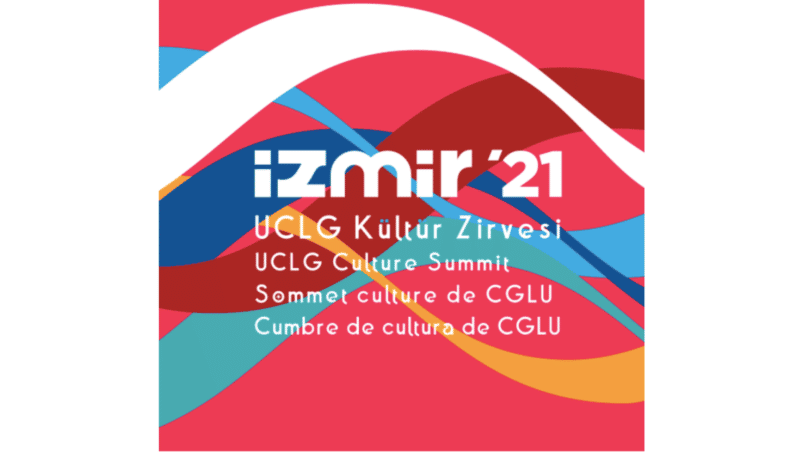Izmir, the third-largest city of Turkey and a coastal metropolis that has historically opened up to Europe and the Mediterranean, has now emerged as a leading advocate of culture in creating sustainable cities. This year, the city became the world’s first “CittaSlow Metropolis” and hosted the 4th UCLG (United Cities and Local Governments) Culture Summit, which brought local governments, academics, and cultural actors together to discuss the role of culture in shaping the future of humanity. More than 850 participants and speakers from 65 countries contributed to over 20 sessions during the summit, which took place on 9-11 September 2021. By taking these initiatives, İzmir Metropolitan Municipality is becoming a role model in creating a culture-oriented approach to city management.
Written by: Dr. Ege Yildirim, Fulya Baran and Levent Tökün.
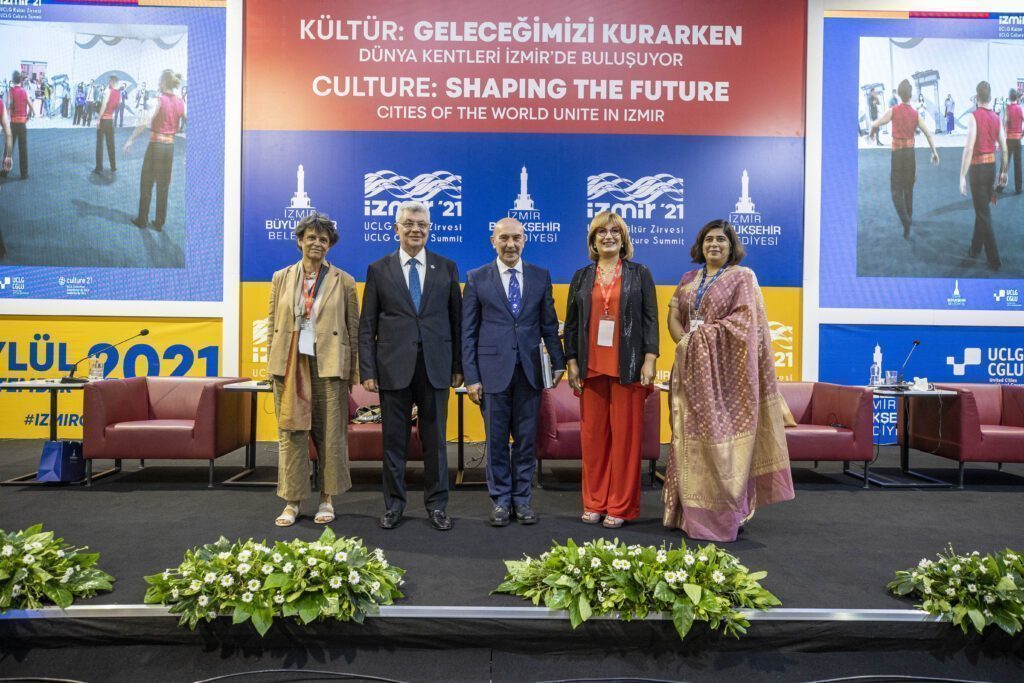
While the climate crisis is increasing its impact on communities around the world day by day, sustainable development for cities is becoming more critical. Culture, as the fourth dimension of sustainable development, provides significant opportunities for decision-makers to align their policies and actions with the Sustainable Development Goals. Izmir Metropolitan Municipality’s mayor Tunç Soyer reminds that “the climate crisis is the result of the assumption that humanity is in a constant battle with nature” and suggests that another culture is possible: that is “circular culture”, a concept bringing together climate action, the circular economy and human capital. It is based on “harmony with nature, harmony with the past, harmony with each other and, last but not least, harmony with change”.
Mayor Soyer suggests that another culture is possible: that is “circular culture”, based on “harmony with nature, harmony with the past, harmony with each other and, last but not least, harmony with change”.
The “circular culture” concept is also the basis of the CittaSlow Metropolis program, according to the mayor’s opening speech at the UCLG Culture Summit. CittaSlow refers to the international network of local governments that embrace the philosophy of managing cities based on improving quality of life, respect for citizens’ health and preserving local cultural and natural values. Becoming a Cittaslow city requires cities to have a population under 50,000. Soyer, who is also the Vice President of the International Cittaslow Union, said at the Cittaslow General Assembly held in Orvieto, Italy, last year, that “we all try to make the world a better place for our citizens in our cities, but why not try to do this in big cities? Big cities are not only the source of problems but also the drivers of innovation and the economy”. He thus presented the “Cittaslow Metropolis” project.
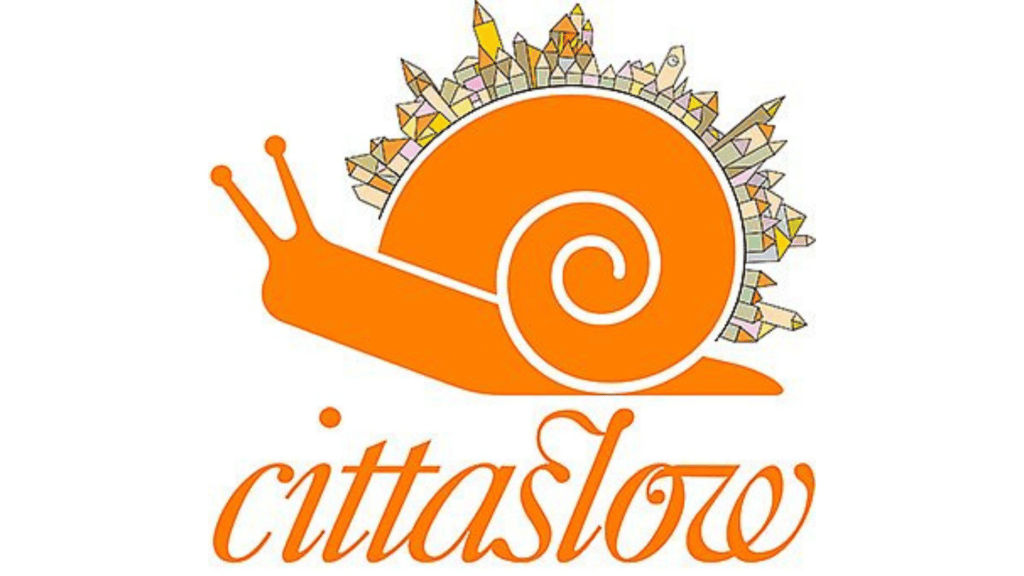
Since then, the Cittaslow network has been working to create ways to introduce its philosophy in big cities. Last June, Izmir was selected as the city/lab hosting the first pilot project for this purpose. Soyer claims that the program sees cities as an ecosystem that fosters calm and harmony, instead of populism and autocracy, adding that “the CittaSlow Metropolis is a progressive model for urban living that unites local and universal values”.
Beside these initiatives, Izmir is involved in several other international networks in support of integrating culture, heritage and art into sustainable development processes. Izmir signed the “Statement on Culture and the COVID-19 Pandemic” issued by the Culture 2030 Goal campaign; Mayor Soyer is giving keynotes in international events such as the side event on “Partnering through Culture” at the UN High-Level Political Forum (HLPF) 2021 and the Climate Heritage Network events taking place during COP26 in Glasgow in November 2021; the Municipality is uniting all managers of Izmir’s six sites on the UNESCO World Heritage and Tentative Lists through the “Izmir Heritage of the World” workshops; the “Respect for History Local Conservation Awards” Program earned a special mention in the 2021 European Heritage Awards; the “culture-nature connection” is being strengthened in the Izmir Nature Strategy 2021, in the Seferihisar Seed Swap Festival and the Narcissus Project advocating that “Another Agriculture Is Possible”; and the public-private partnership model for cultural heritage is brought to life in “Tarihi Kemeralti Inc.” (TARKEM) and the Mediterranean Academy, among other projects.
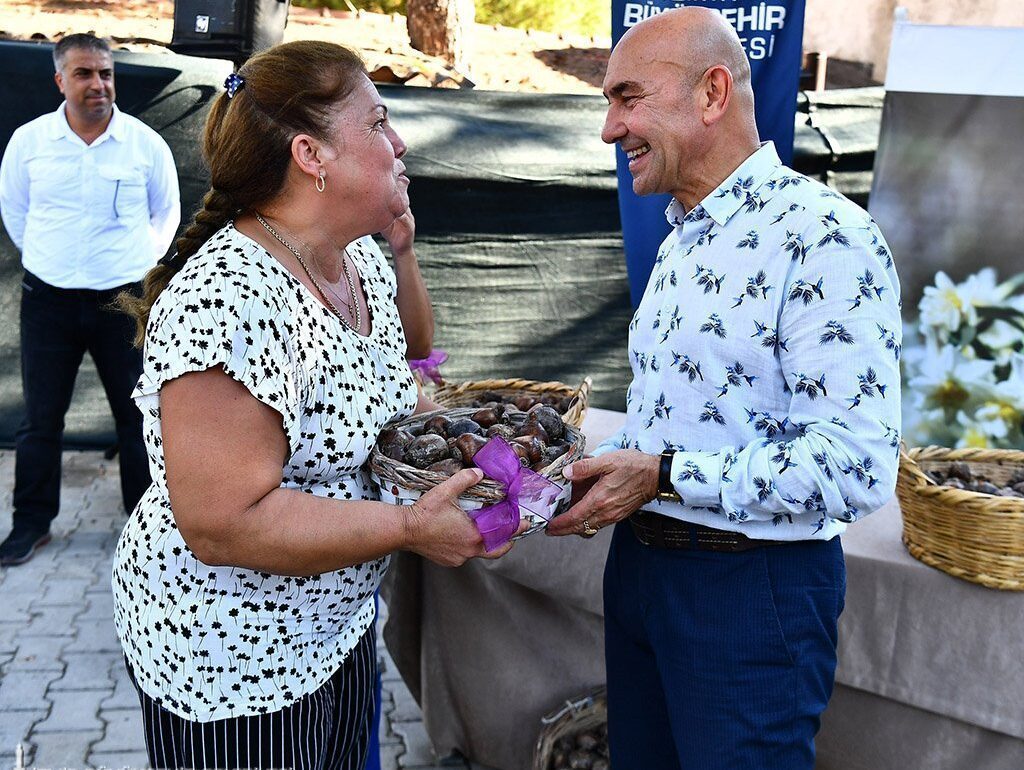
Above all, Izmir’s achievements in 2021 are part of a longer process, based on many years of work building up the city’s cultural ecosystem, mainly through the Pilot Cities and Leading Cities programs of UCLG’s Agenda 21 for Culture. Positioning itself first as a ‘Mediterranean Capital of Culture’, Izmir continues to strengthen its voice, mobilizing culture for a sustainable urban future for all.
About the authors
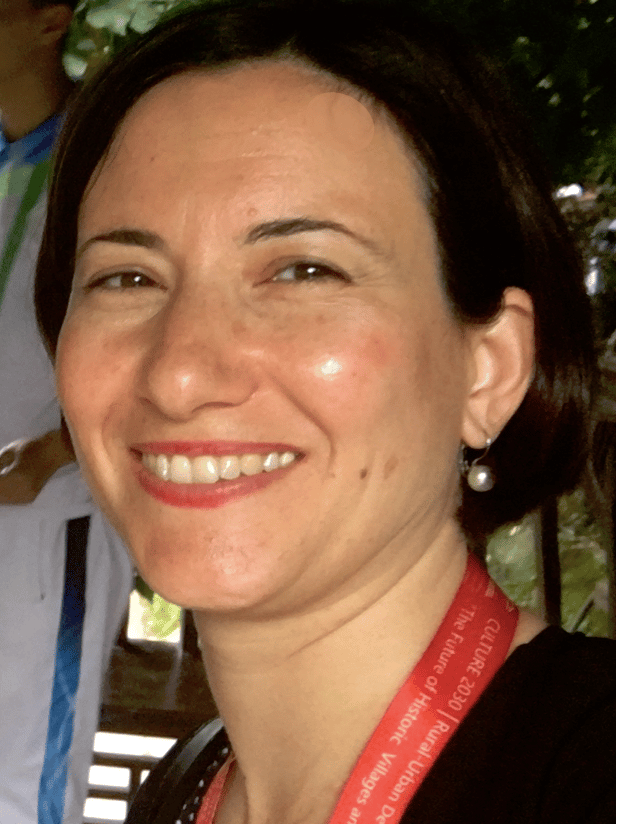
Dr. Ege Yildirim is a heritage planner with 20+ years of experience working in Turkey and internationally. Based in Istanbul since 2013, she is an independent consultant, scholar and activist. Her previous positions include planner at KA-BA Architecture, Ankara, and at the Abu Dhabi Authority for Culture & Heritage, UAE; site manager of the Historic Guild Town of Mudurnu, key expert at the EU-Turkey Anatolian Archaeology and Cultural Heritage Institute project, and ICOMOS Focal Point for the SDGs. Ege was a Fulbright Scholar at Pratt Institute, New York, and a Kaplan Fellow at Koç University, Istanbul. See also: https://www.linkedin.com/in/dr-ege-yildirim-9a6240a/
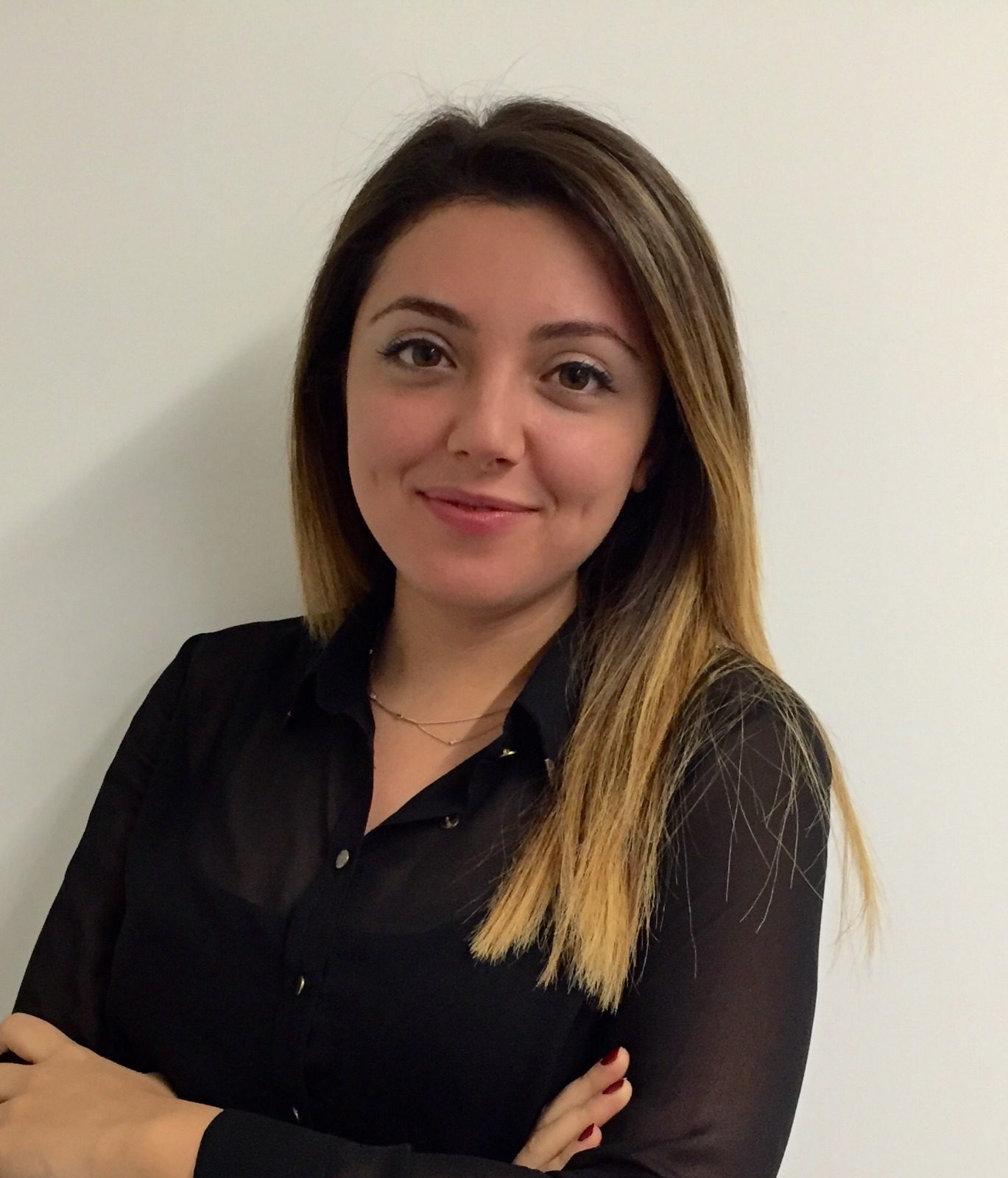
Fulya Baran graduated from Boğaziçi University with a bachelor’s degree in Management and from Bilgi University with a master’s degree in Cultural Management. She worked in the communications department of various museums and art galleries. Her texts on contemporary art and cultural heritage were published in “Gazete Duvar”, “Hürriyet Kitap Sanat”, “Istanbul Art News”, and “Argonotlar”. She is the membership editor of “Argonotlar”, a newly established contemporary art publication in Turkey. Her master’s thesis is on the participation of NGOs in the management of urban heritage, focusing on the Historical Peninsula of Istanbul.
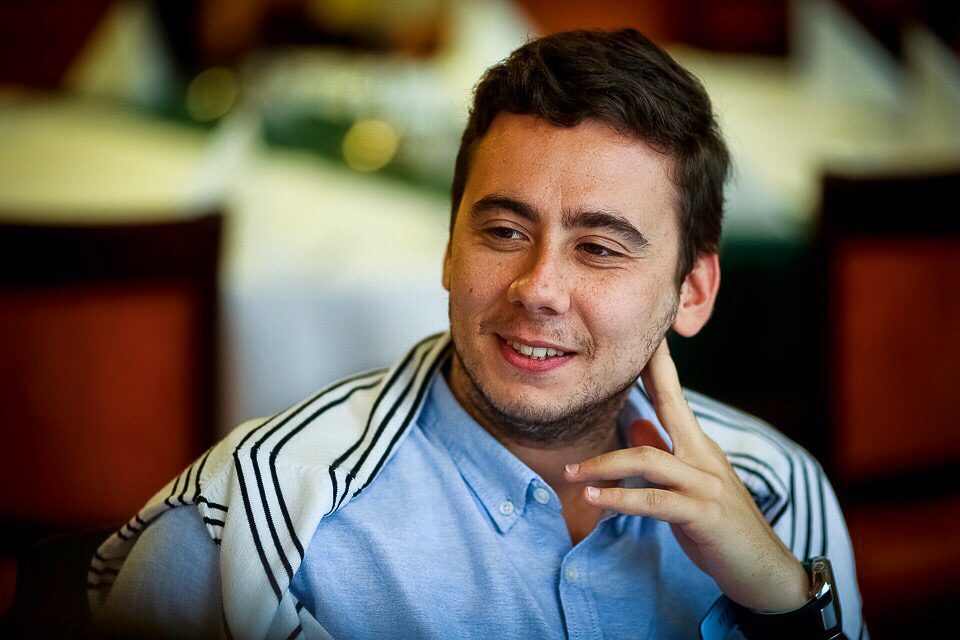
Levent Tökün is an archaeologist, art historian, and European Heritage Youth Ambassador focused on cultural heritage politics and museums. He obtained his BA degree in Archaeology and History of Art from Koç University, Turkey, where he also spent a semester abroad at Trinity College Dublin, Ireland, as an exchange student, and later completed his dual MA degree in World Heritage Studies at the Brandenburg University of Technology Cottbus-Senftenberg, Germany & in Cultural Heritage at Deakin University, Australia. For the MA thesis, he researched the issue of the return of illicitly trafficked cultural property both to and from Turkey from the perspective of policy consistency and goodwill.

